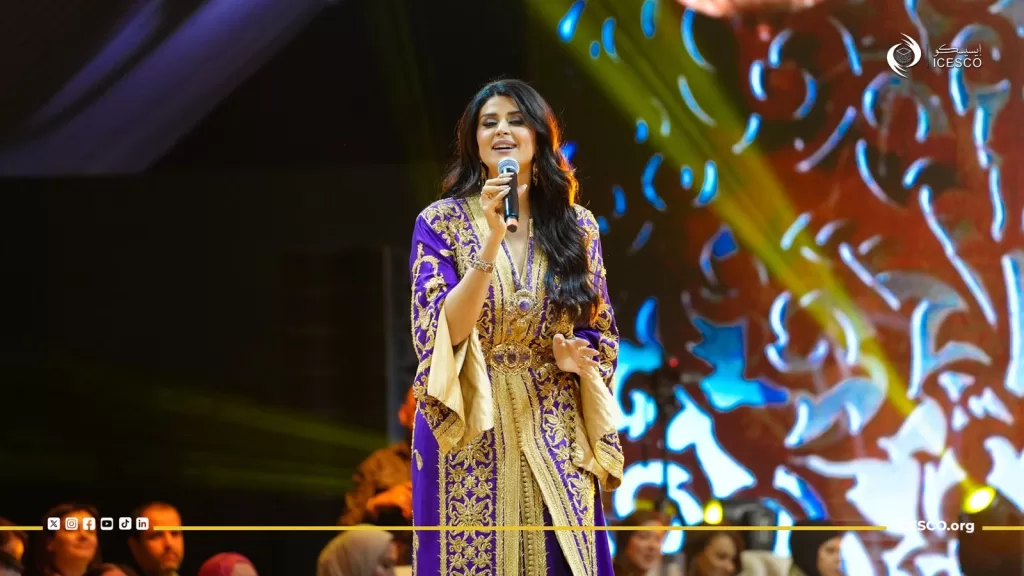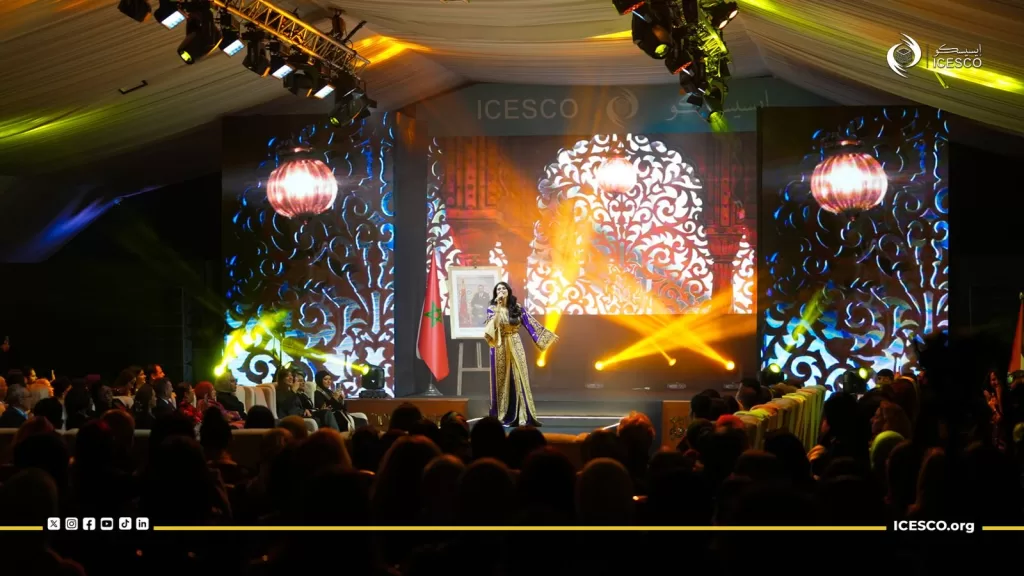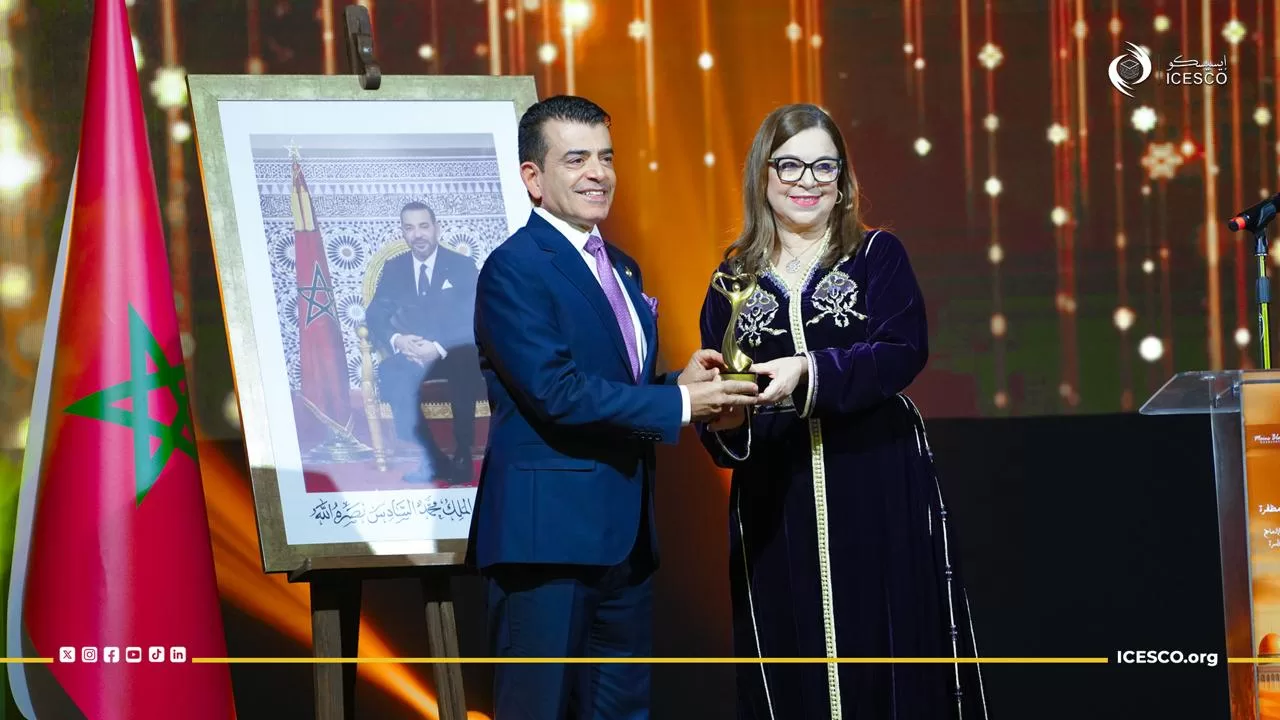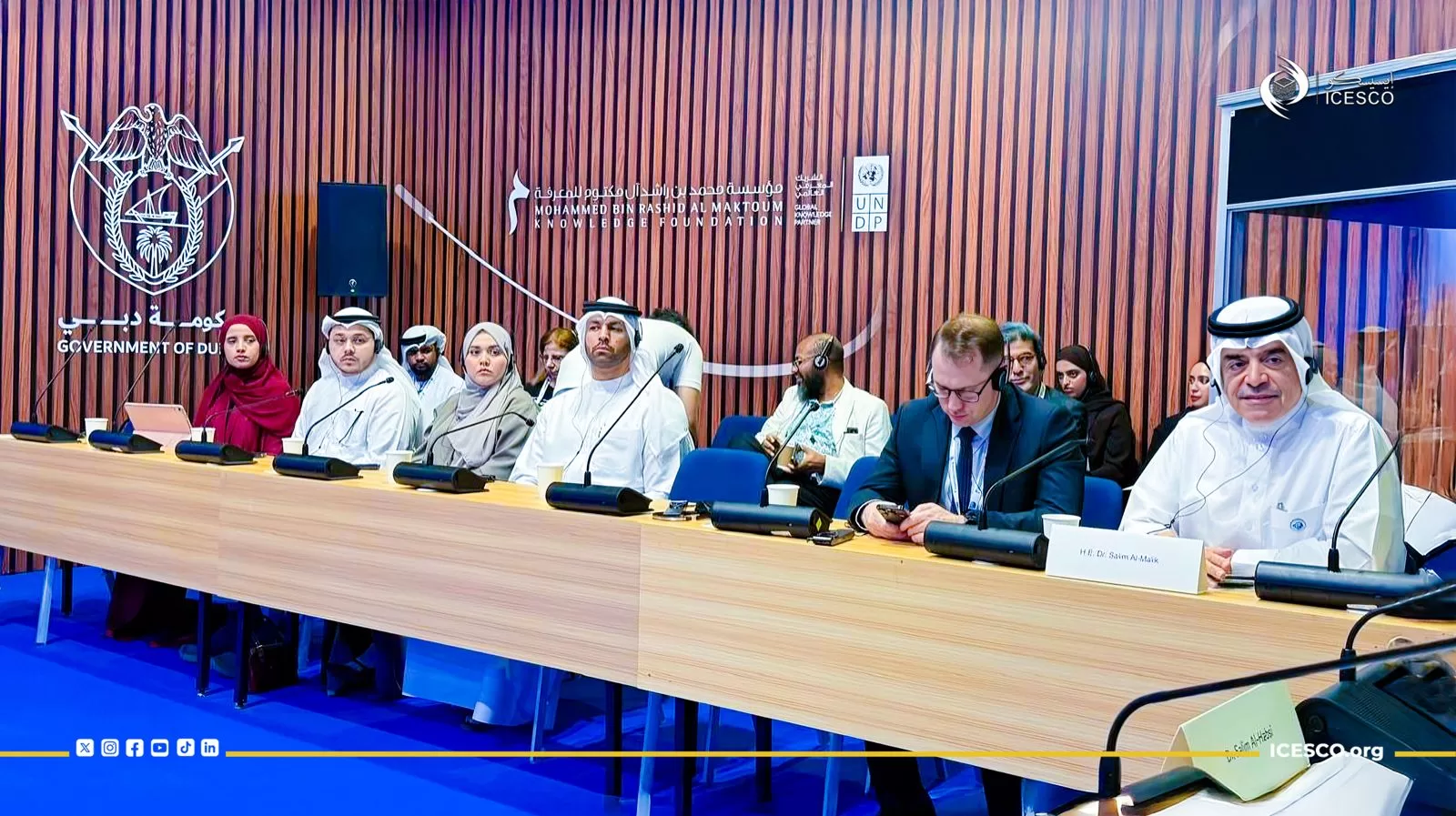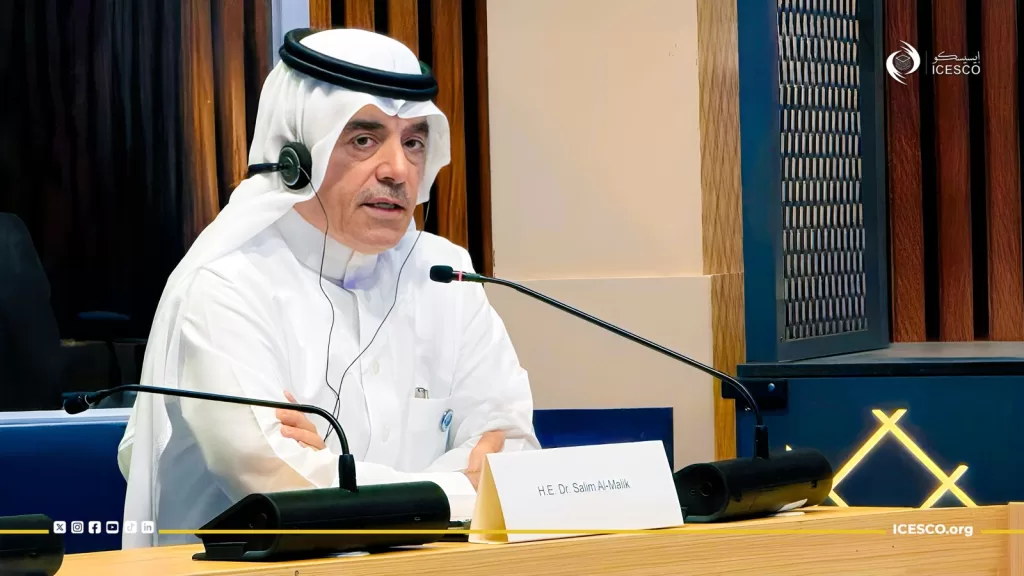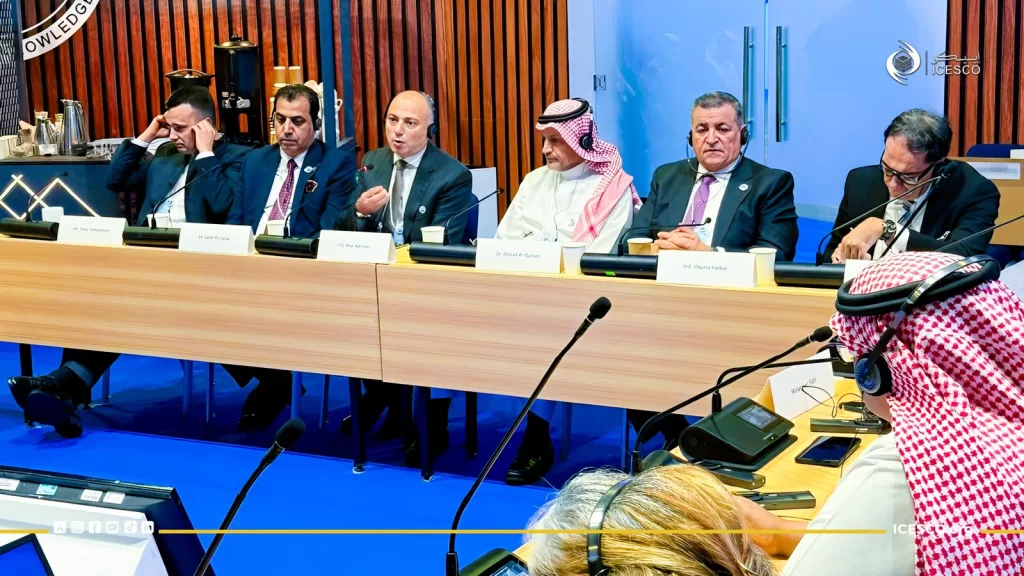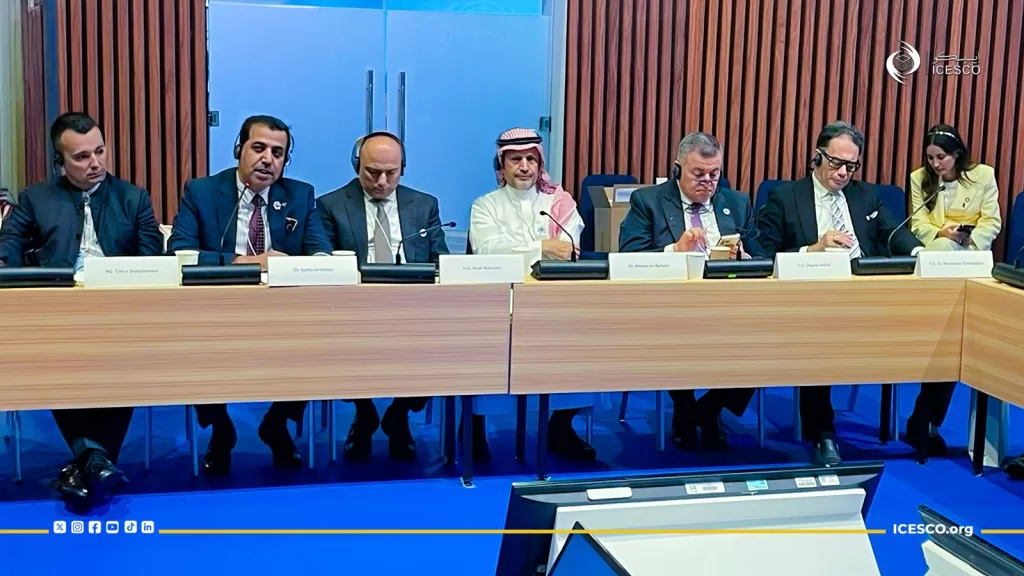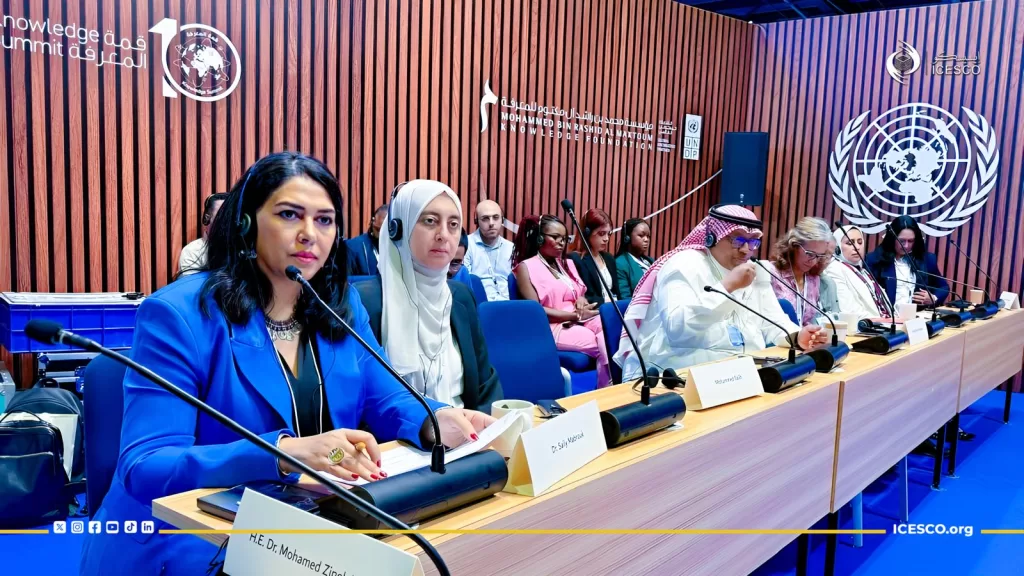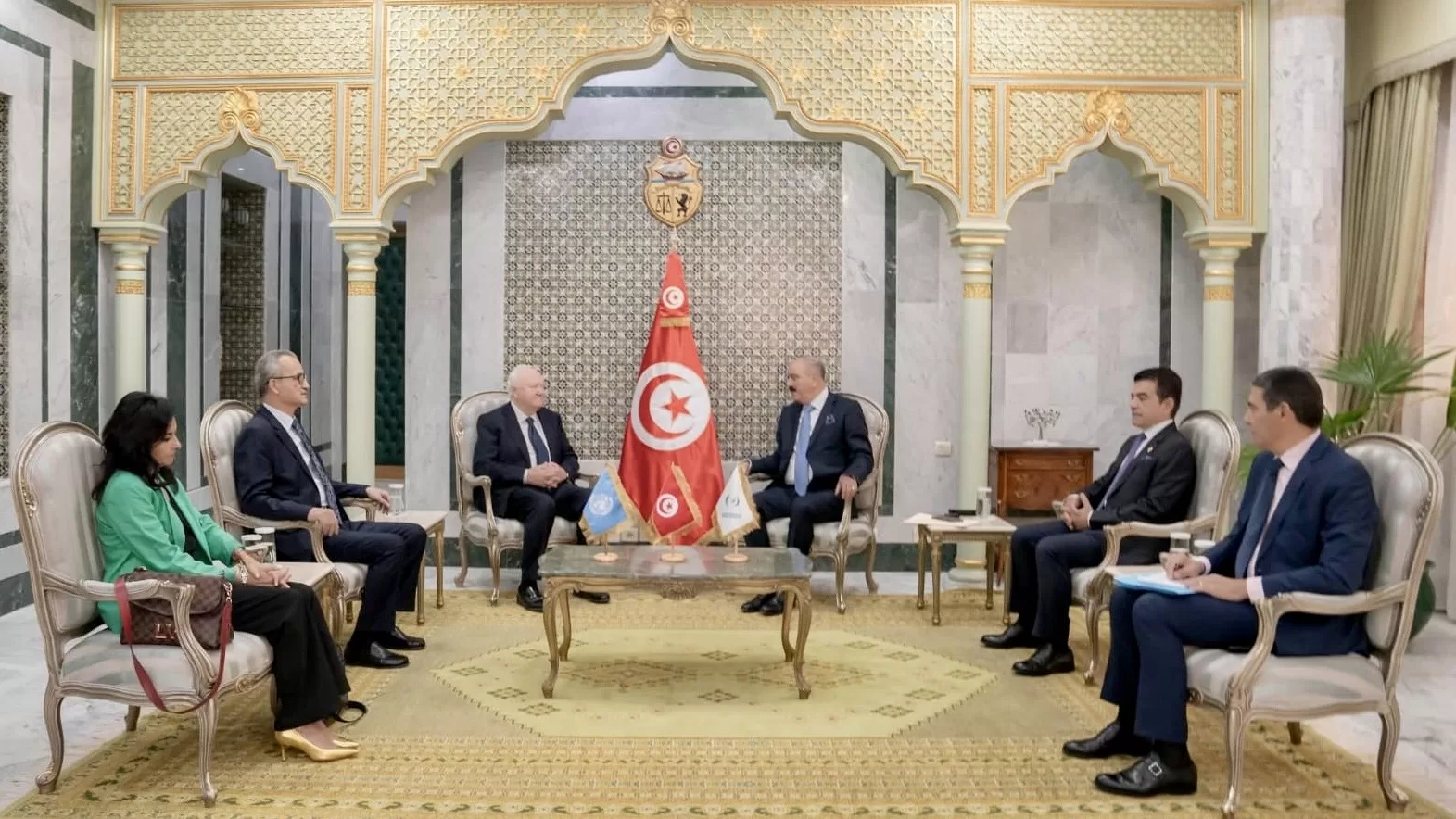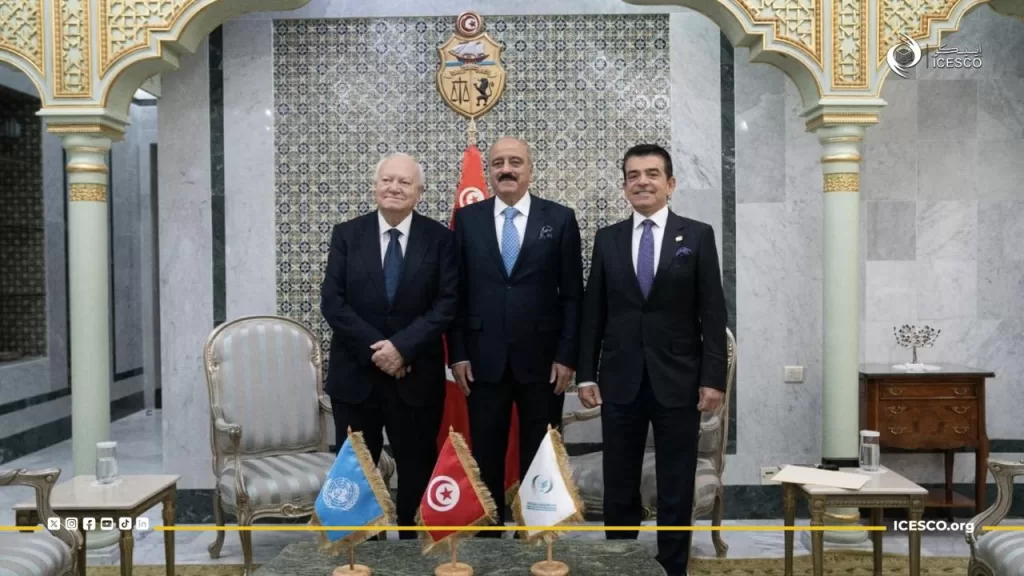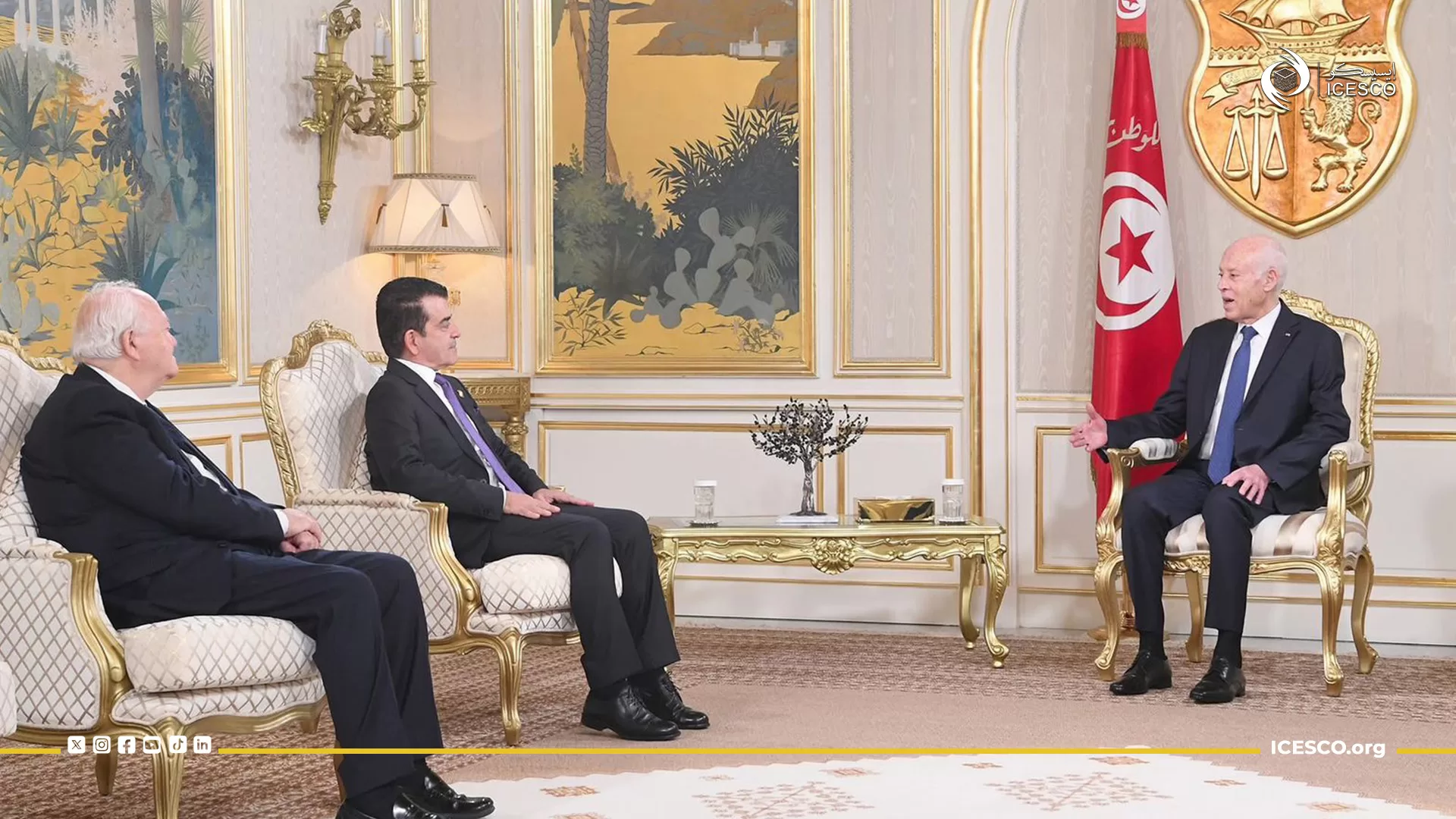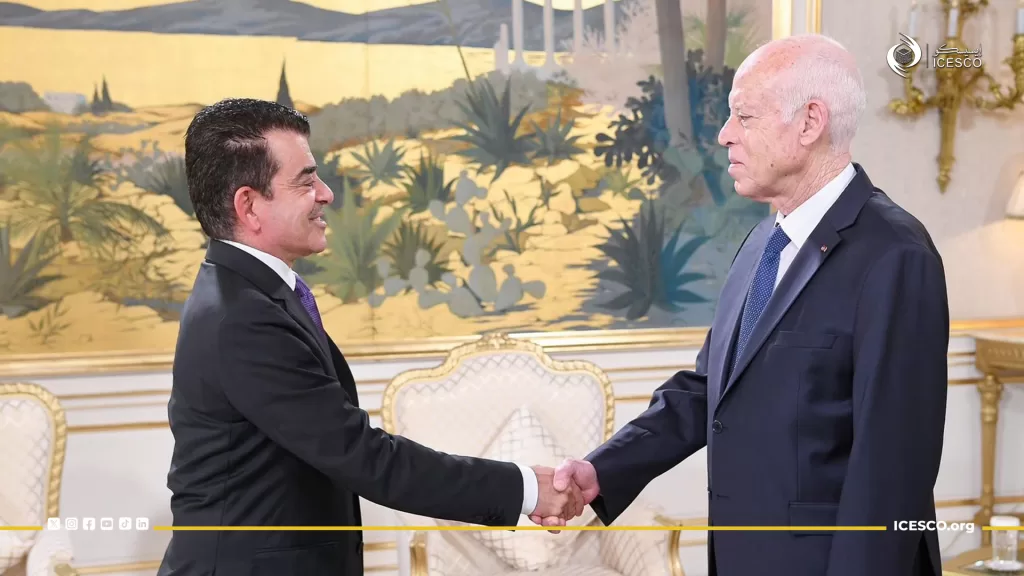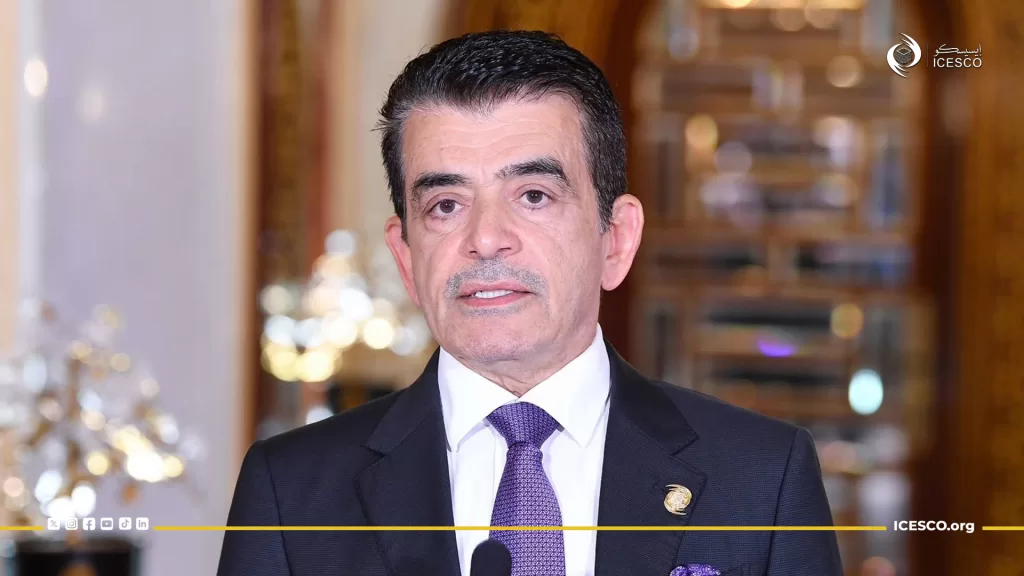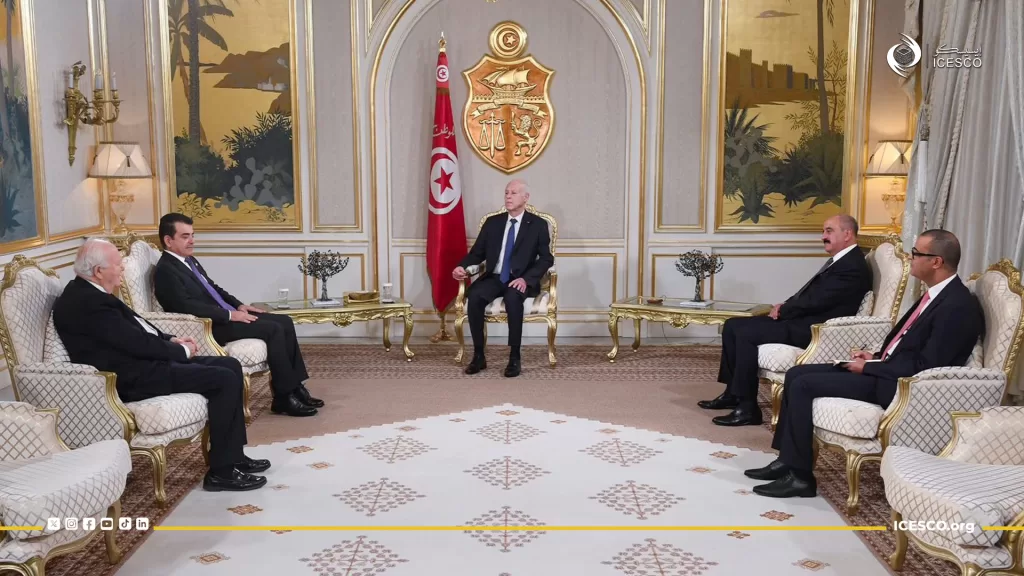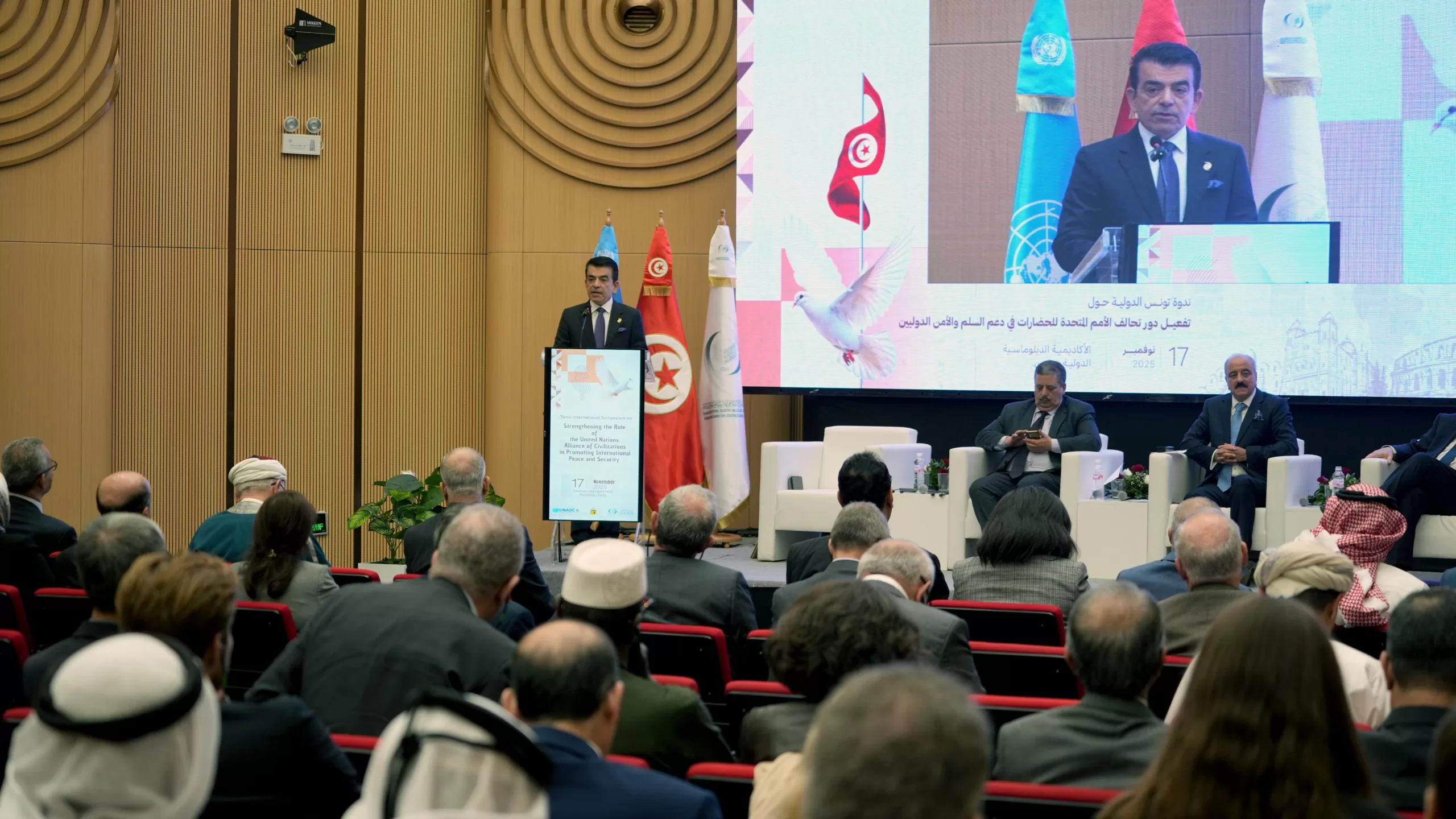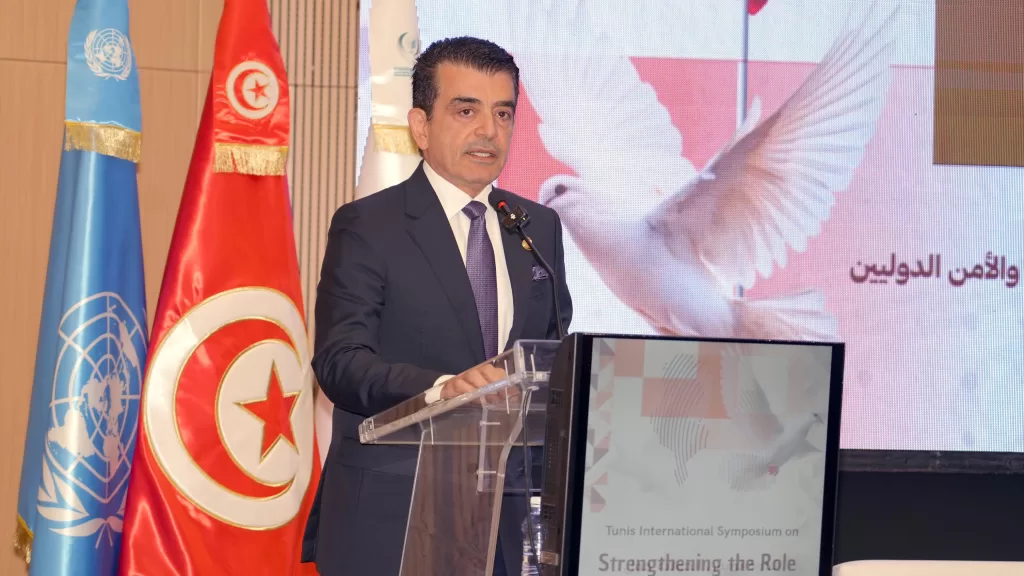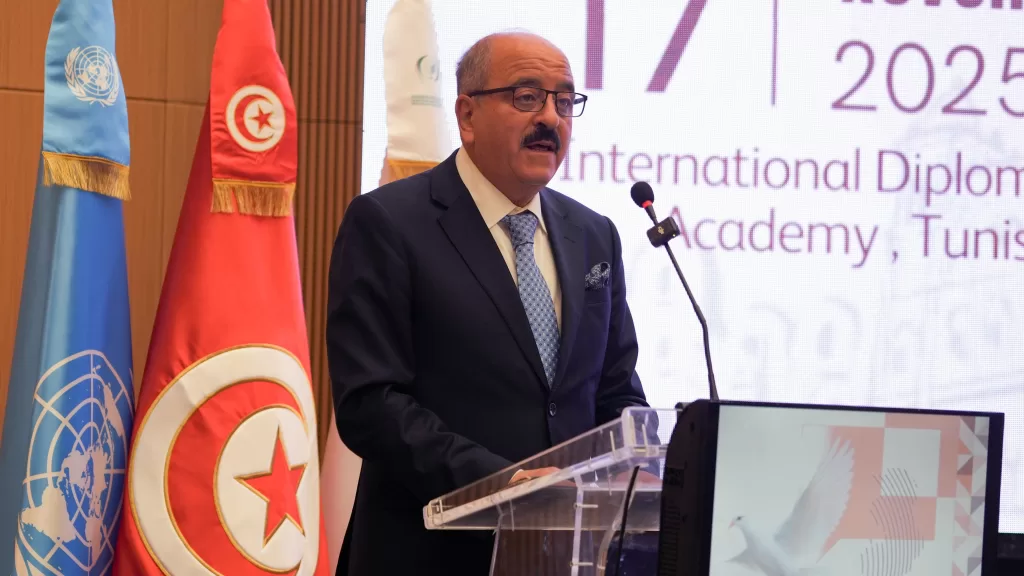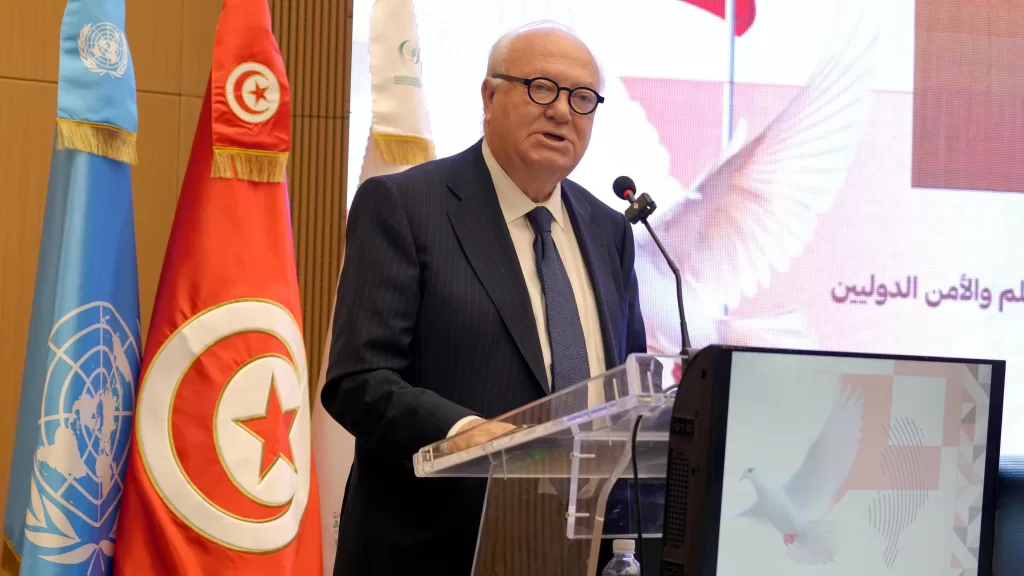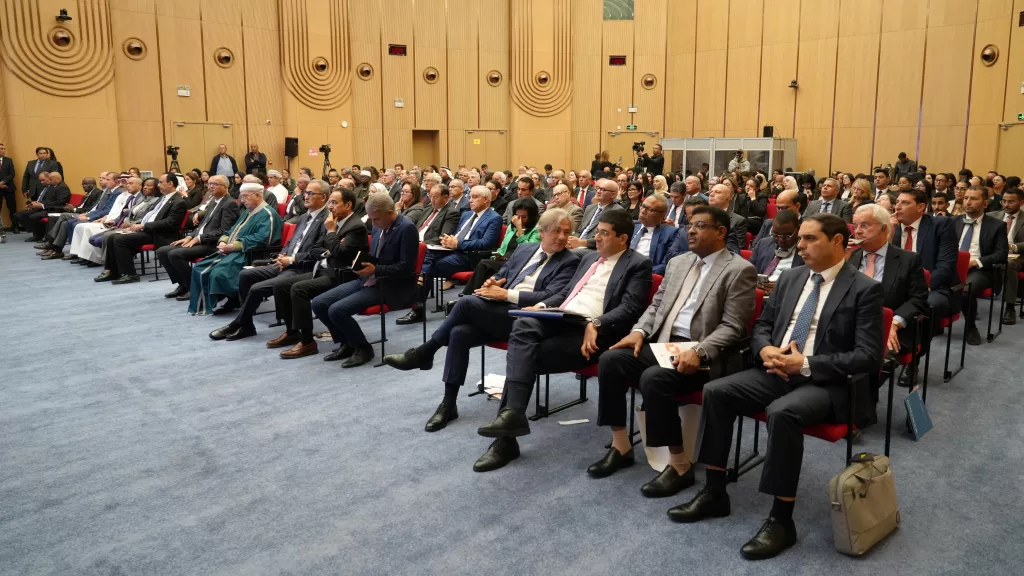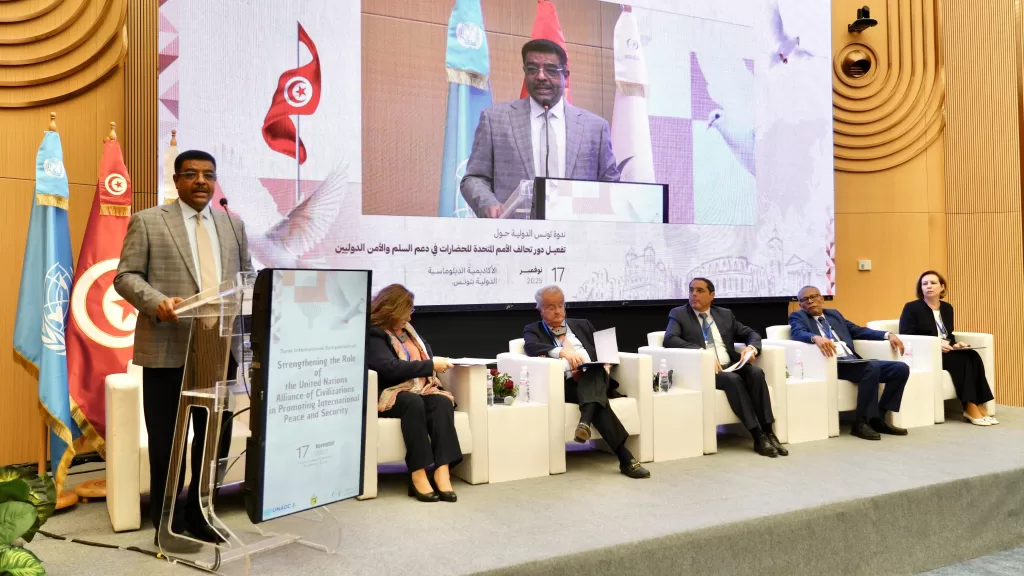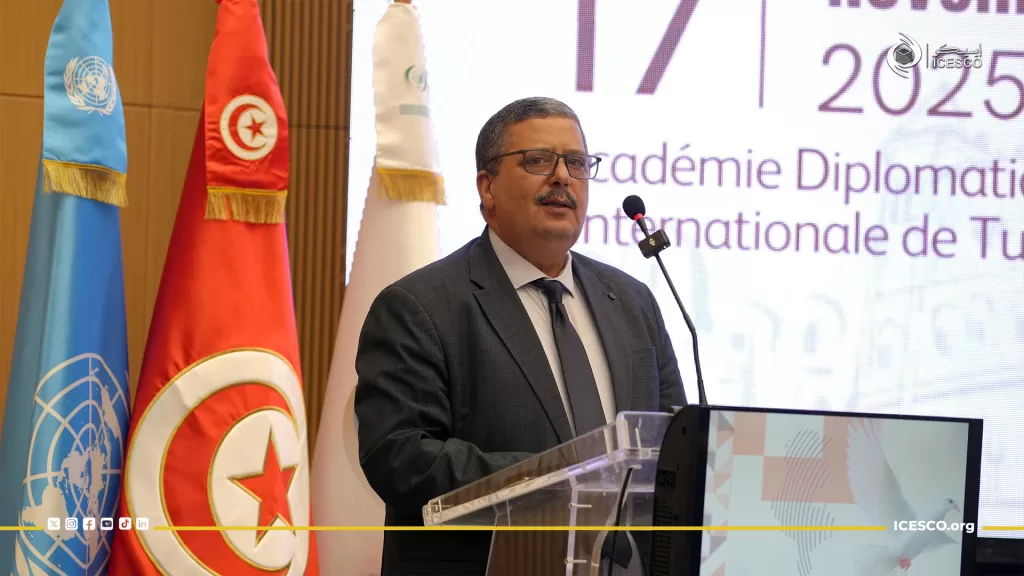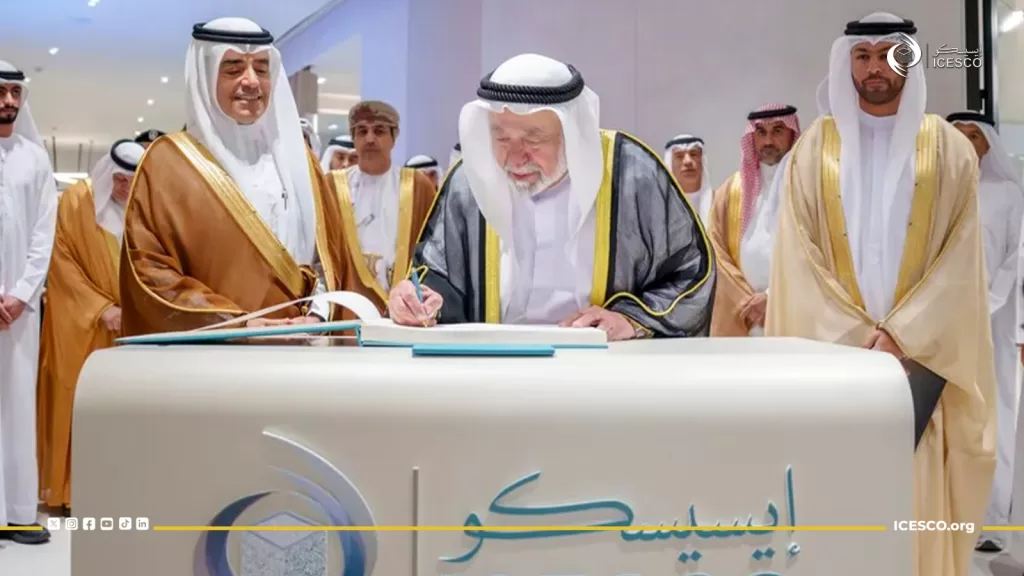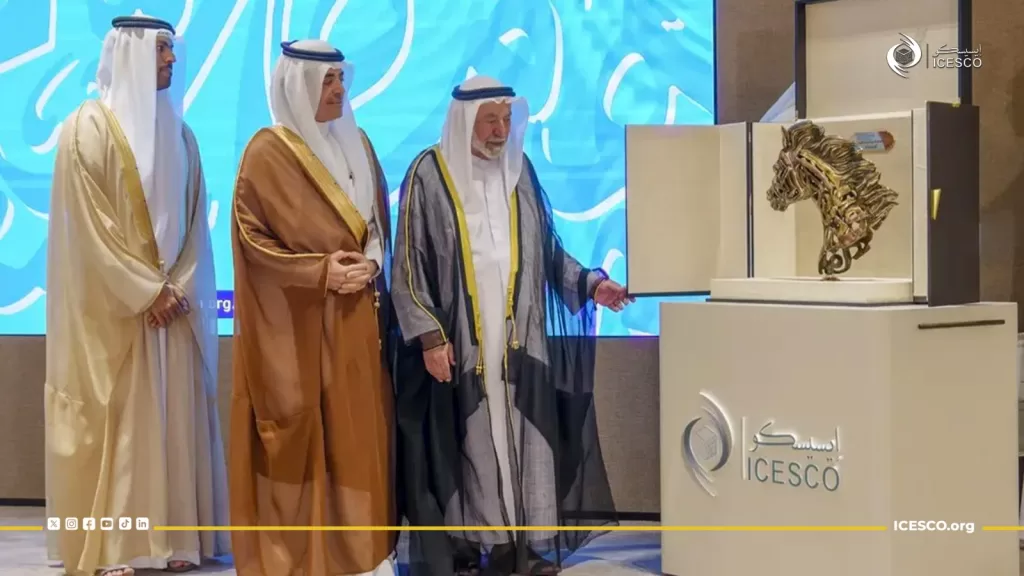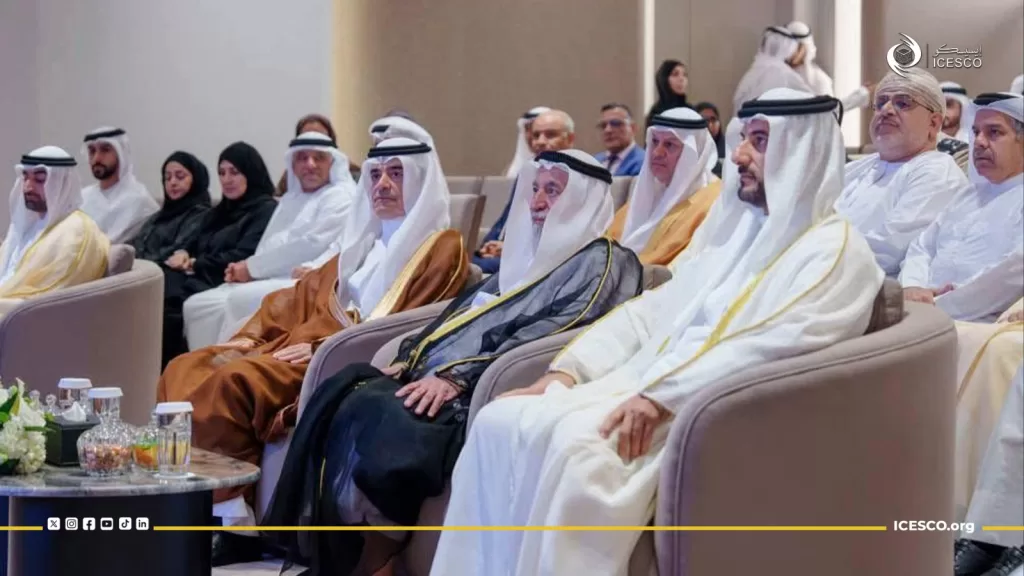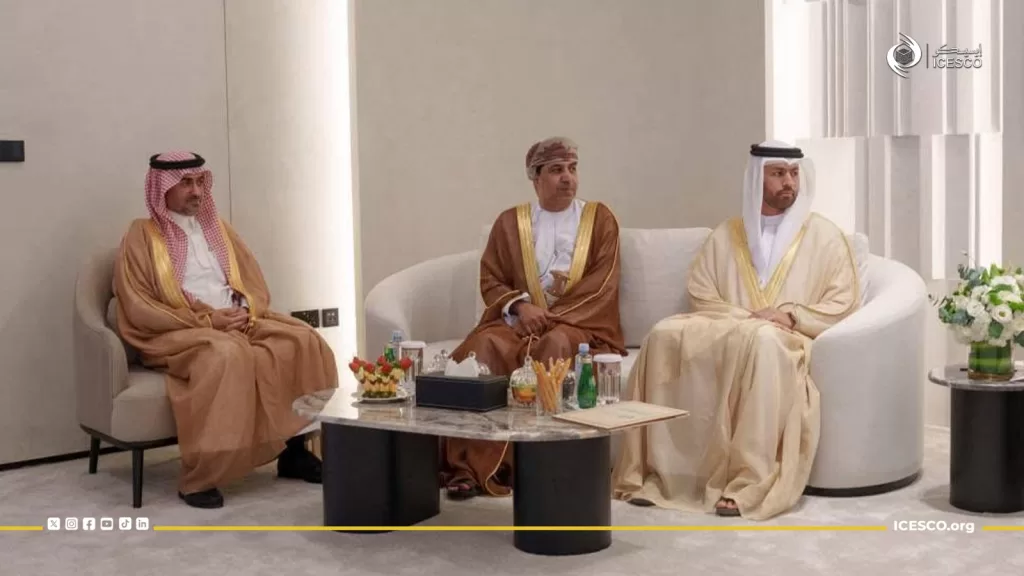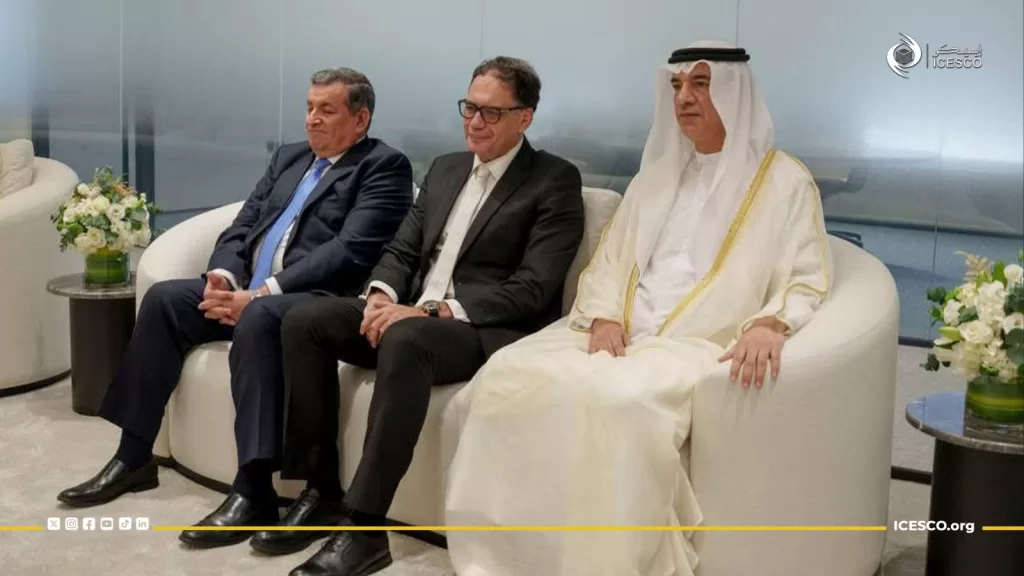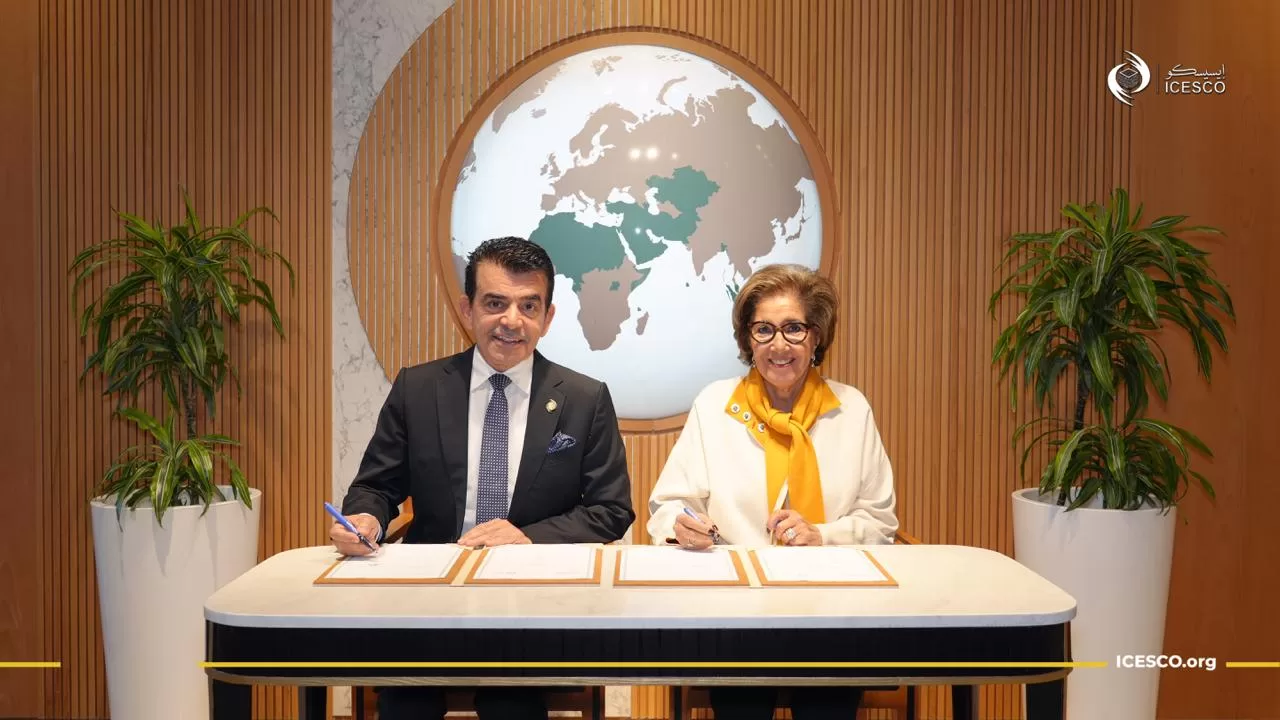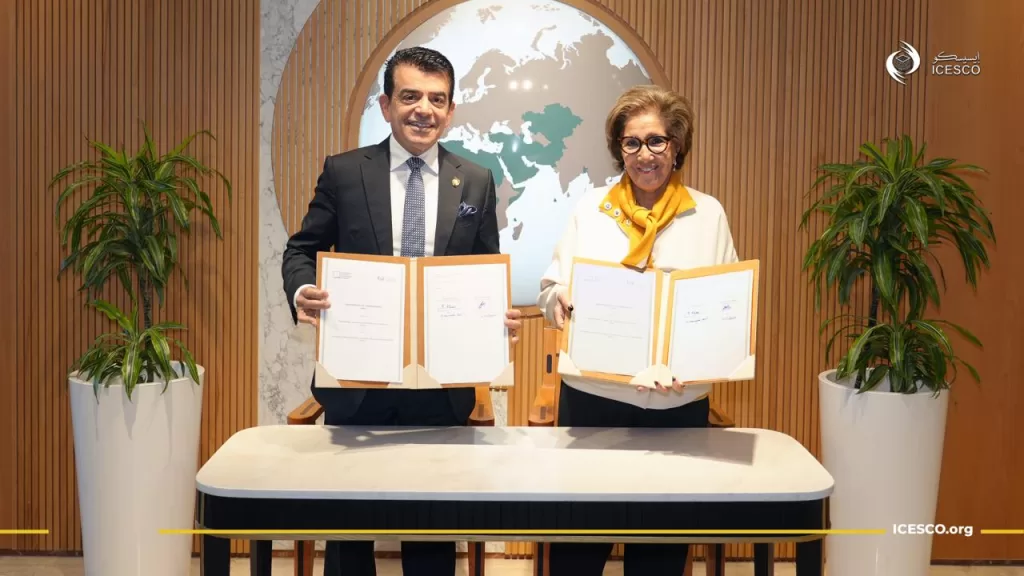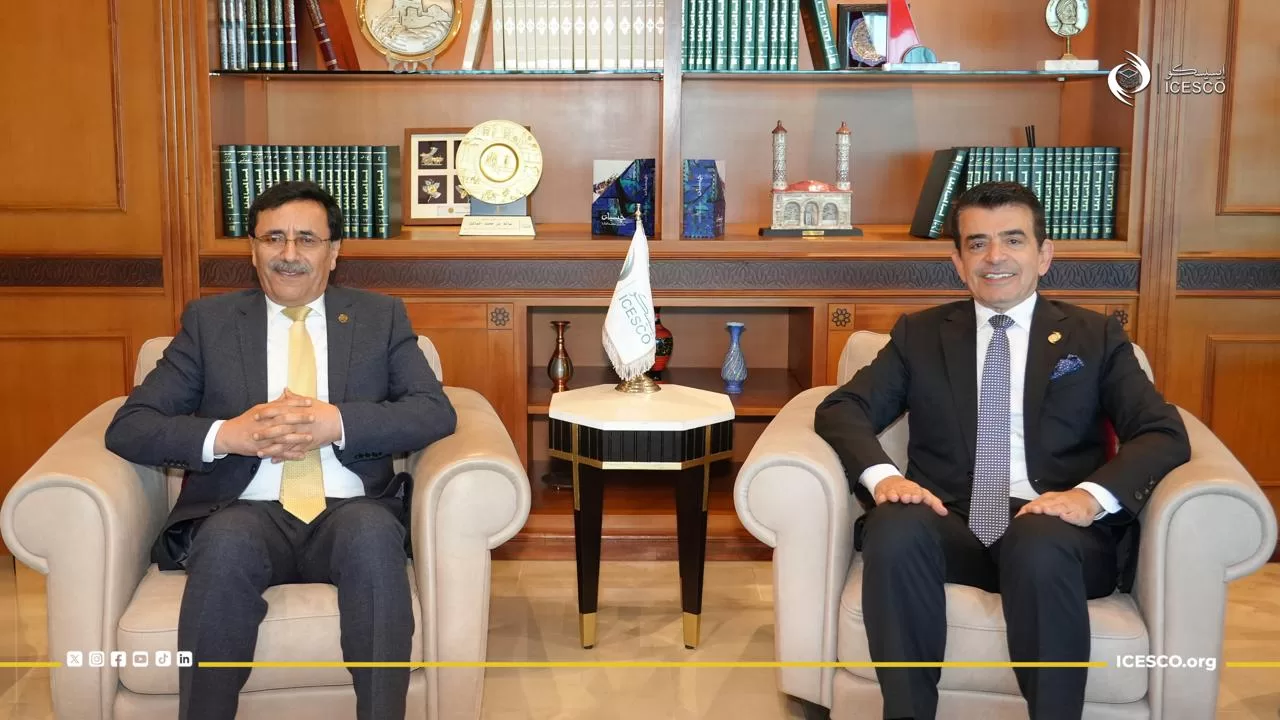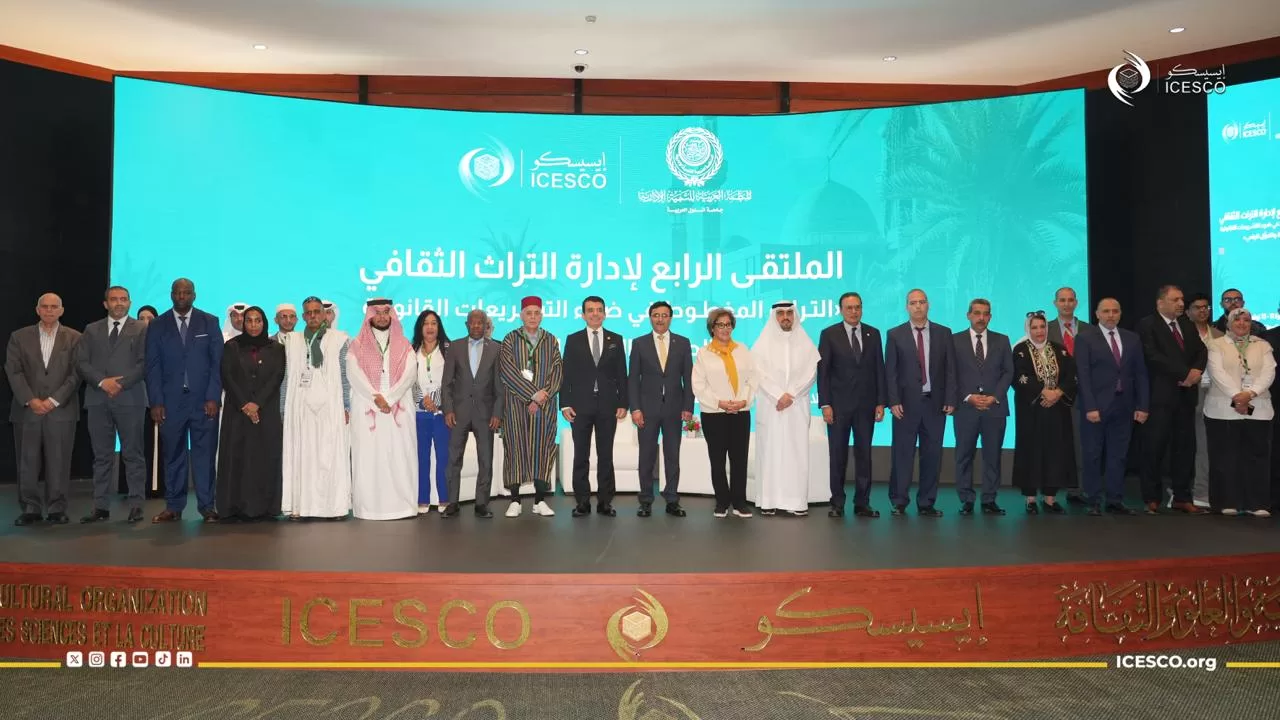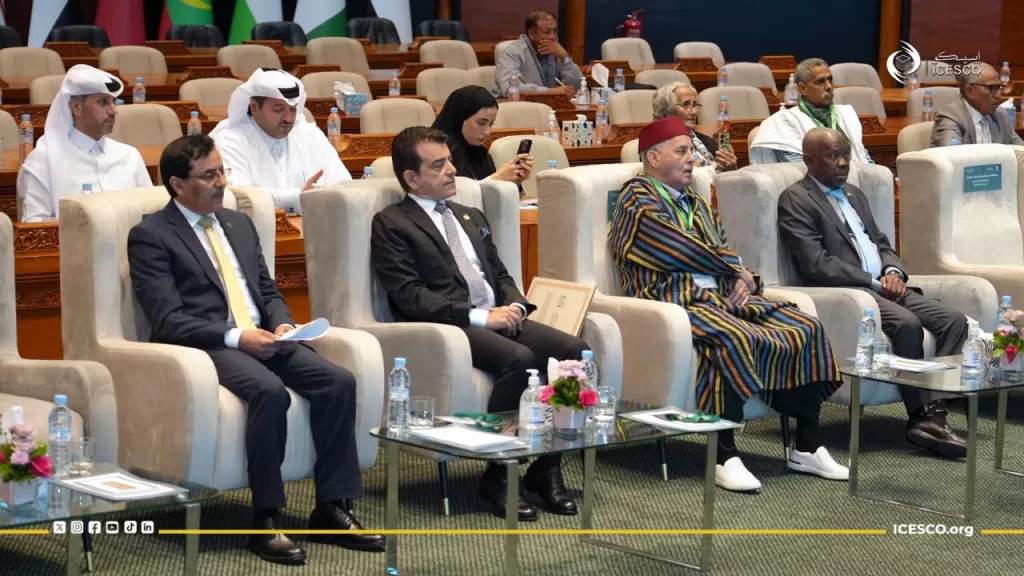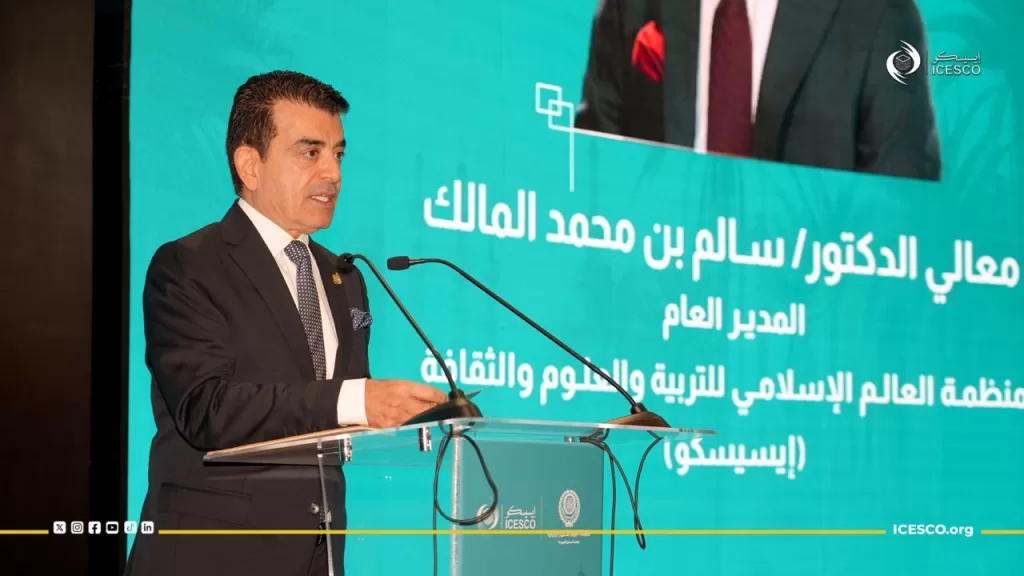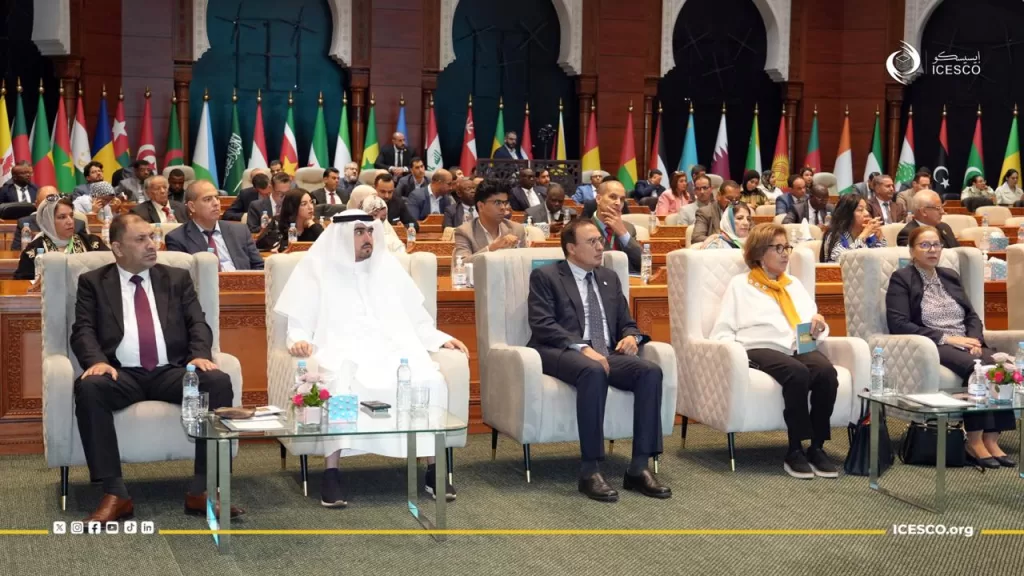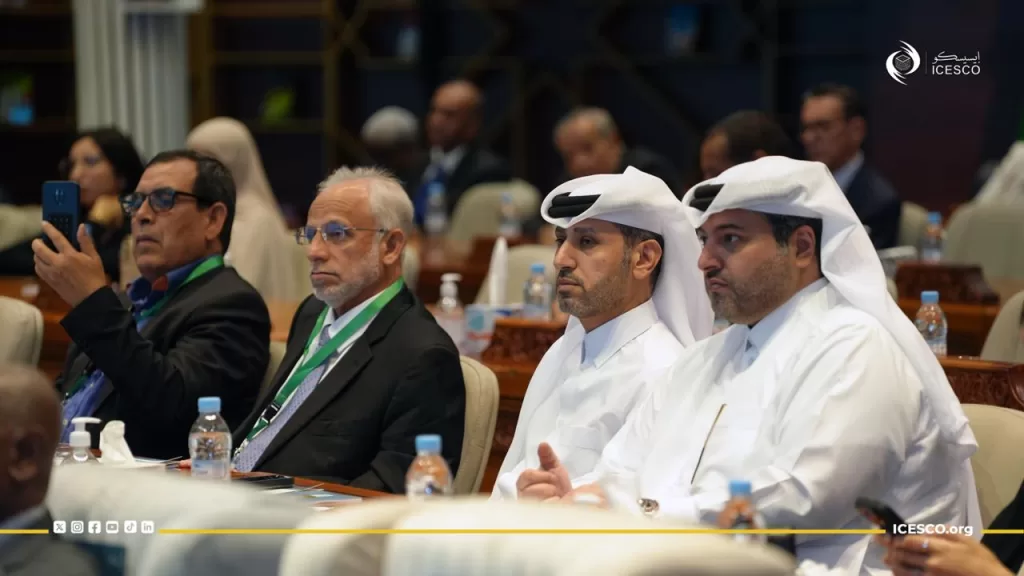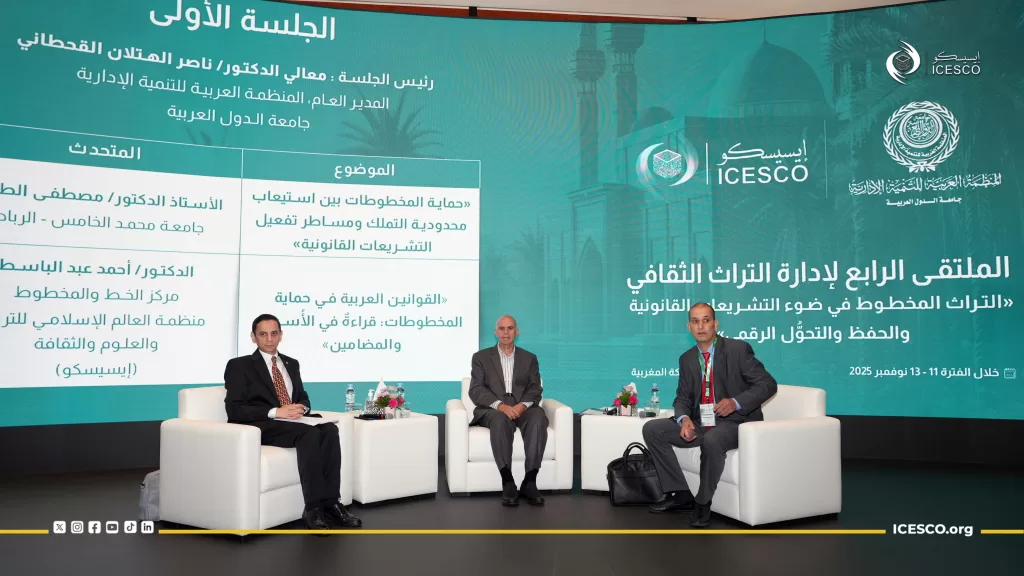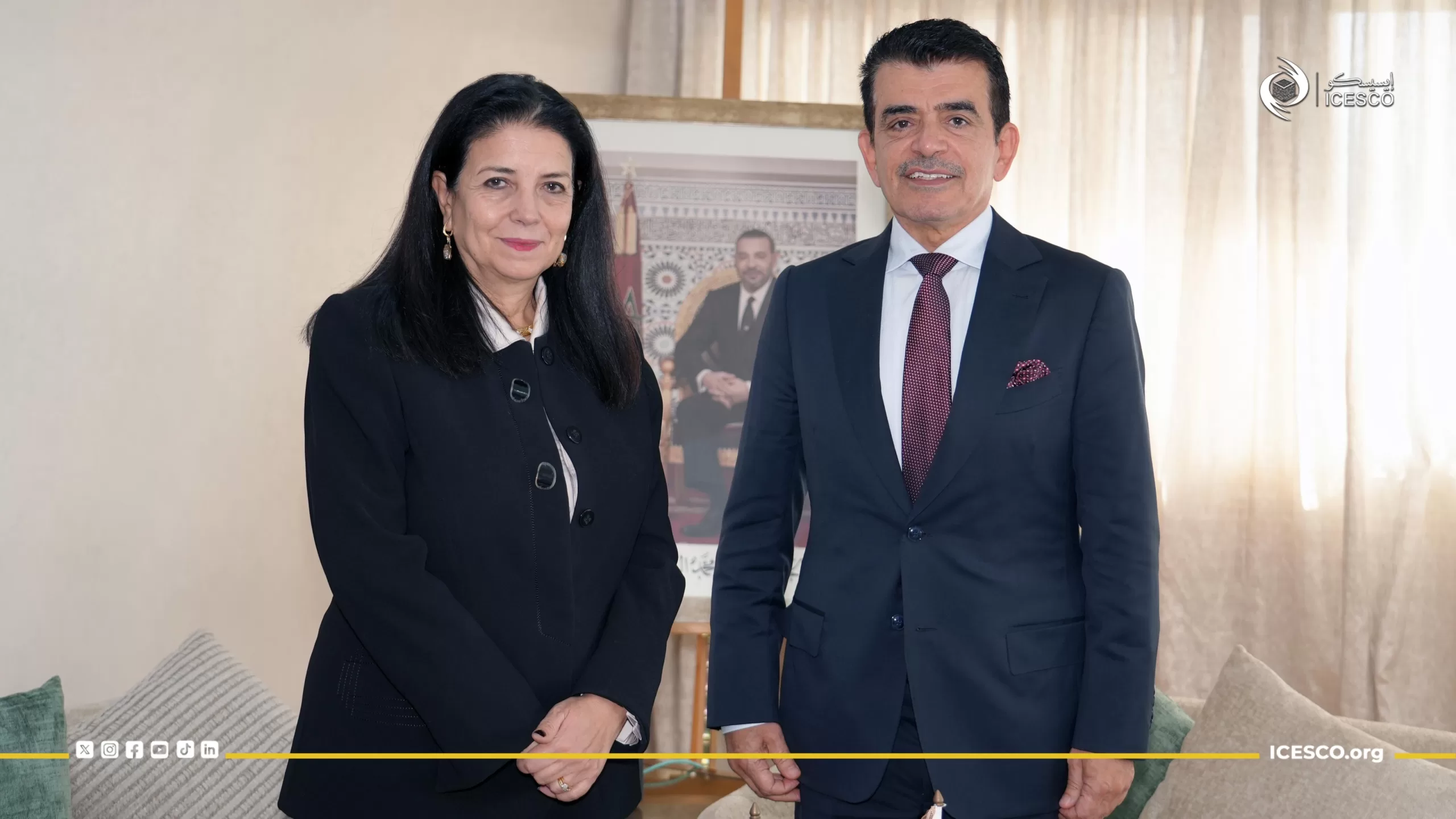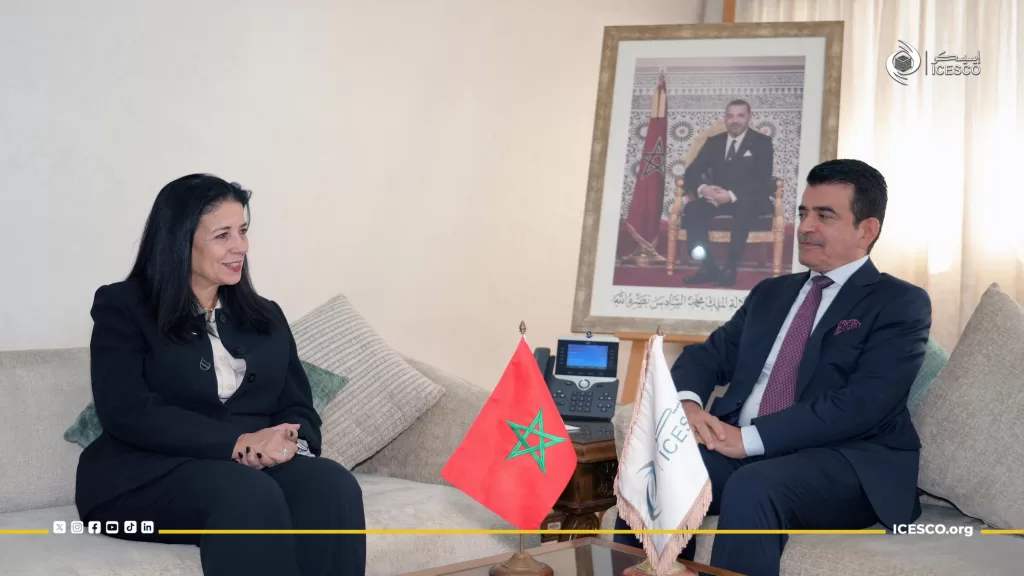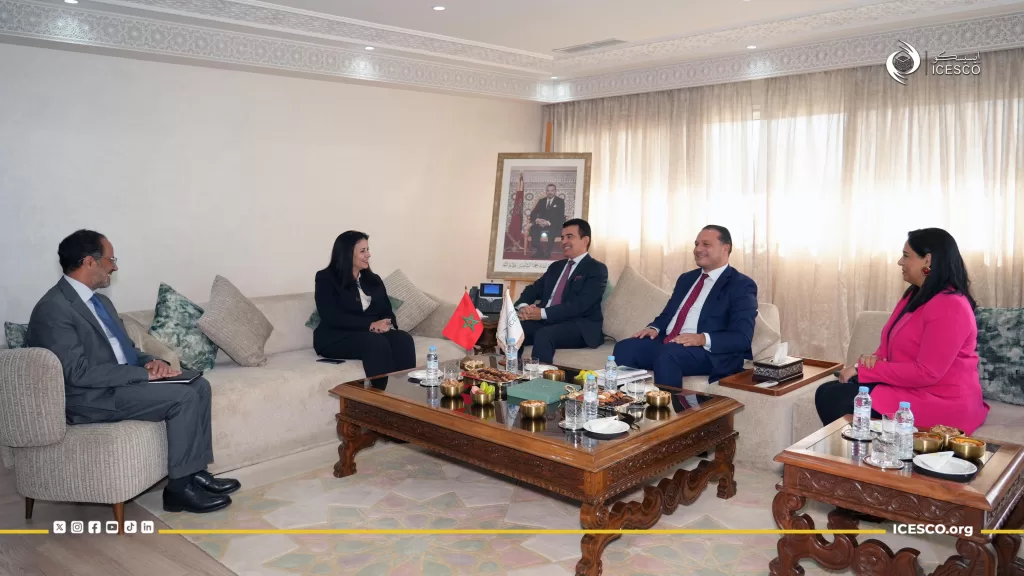The Group of Spouses of Arab Ambassadors and Heads of International Organizations accredited to the Kingdom of Morocco, in cooperation with the Moroccan Ministry of Solidarity, Social Integration and Family, and the Mains Blanches Association, organized on Saturday evening, 22 November 2025, an exceptional charity event themed “Anamil Al Nour, Caftan Al Khair,” hosted at Khaimat Al Khair Hall at the headquarters of the Islamic World Educational, Scientific and Cultural Organization (ICESCO).
The event was held as part of the celebrations marking the fiftieth anniversary of Morocco’s Green March, with proceeds dedicated to funding eye correction surgeries for those in need.
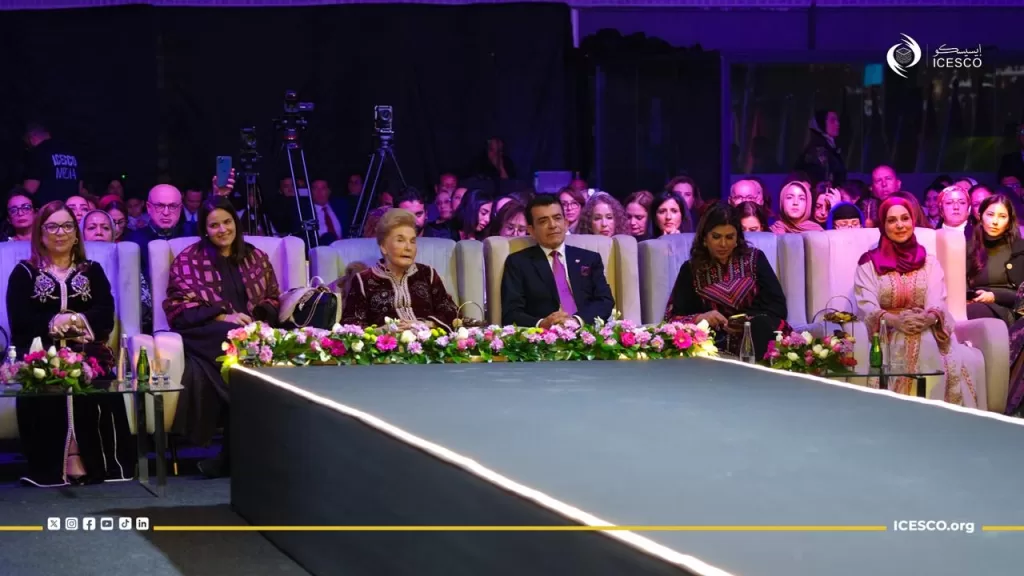
The gala, attended by Her Highness Princess Lalla Lamia El Solh, and Dr. Salim M. AlMalik, Director-General of ICESCO, combined refined art with a humanitarian purpose. It featured traditional fashion shows by leading designers from Morocco, Palestine, Tunisia, and Jordan, alongside a musical performance by Moroccan artist Salma Rachid, in an evening distinguished by elegance and creativity in service of social solidarity.
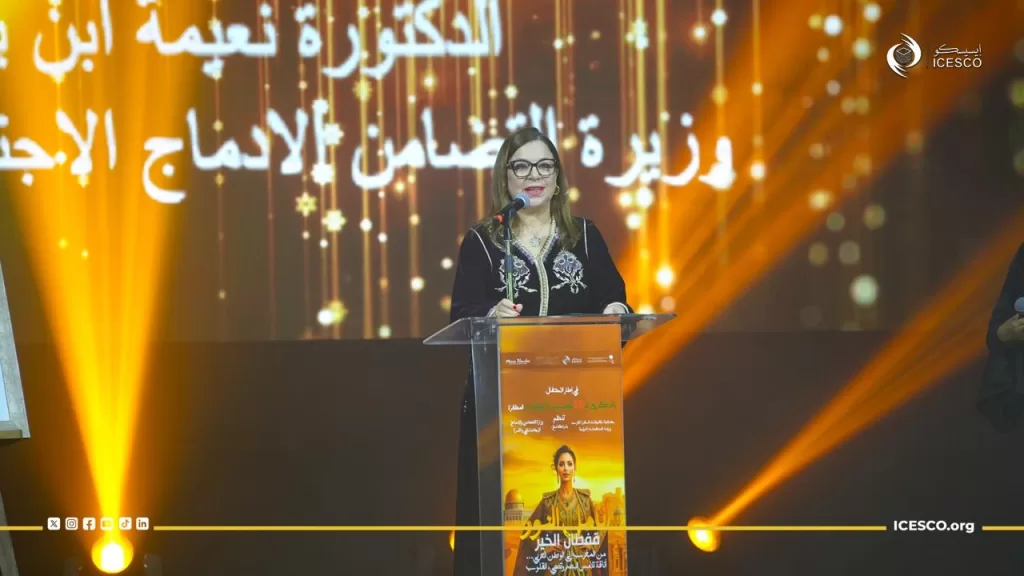
In her opening remarks, Dr. Naima Ben Yahia, Minister of Solidarity, Social Integration and Family, stressed that the event reflects the importance of charity work in strengthening social cohesion and highlights the pivotal role of civil and international organizations in building bridges of solidarity. She expressed appreciation for the cooperation between the Group of Spouses of Arab Ambassadors, the Mains Blanches Association and ICESCO in ensuring the success of this creative and humanitarian initiative.

For her part, Ms. Rania Shobaki, Chairwoman of the Group of Spouses of Arab Ambassadors and Heads of International Organizations, thanked ICESCO for hosting the event, emphasizing that traditional attire is an integral component of Arab cultural identity. She noted that reviving heritage breathes new life into traditions and makes them active in humanitarian initiatives, adding that safeguarding heritage is an act of resilience, particularly for Palestinian heritage targeted by erasure and theft. She described the gala as a platform to showcase this heritage globally and paid tribute to Palestinian women as steadfast guardians against distortion and dispossession.
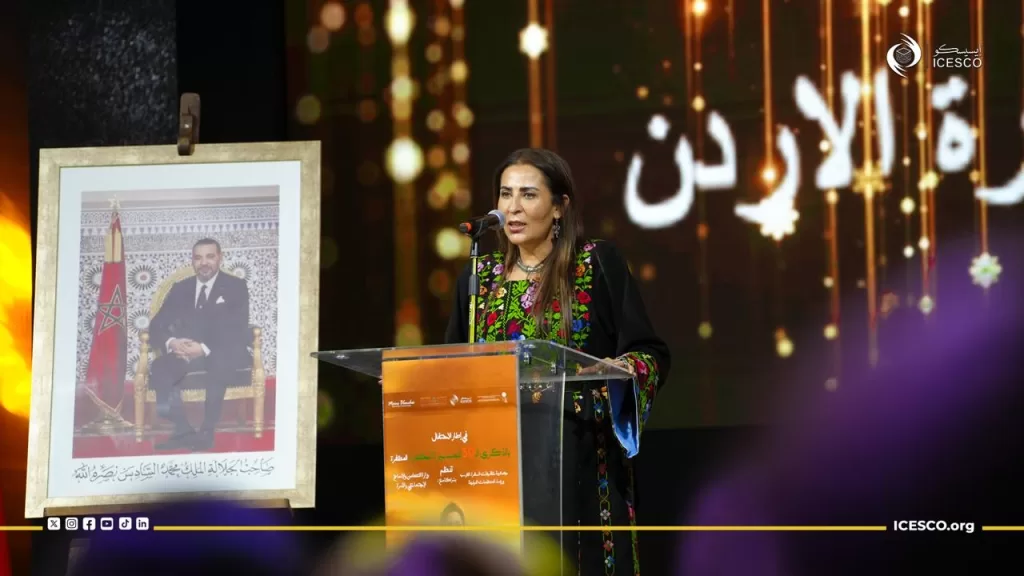
Following this, Ms. Jumana Ghunaimat, Ambassador of the Hashemite Kingdom of Jordan, stated that Arab heritage represents a rich mosaic stretching from the East to the Maghreb, underscoring that Moroccan-Jordanian relations exemplify cultural convergence and the spirit of fraternity uniting Arab and Islamic nations with their wealth and deep-rooted traditions. She affirmed that Jordan’s presence as guest of honour is a source of high appreciation and pride.
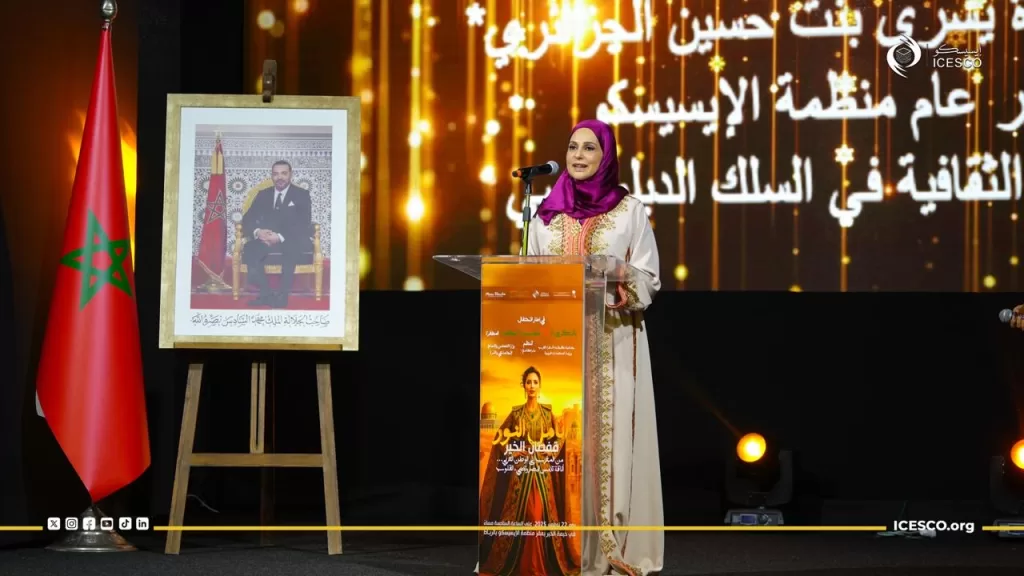
Dr. Yousra Bint Hussain AlJazairy, Chairwoman of the Cultural Committee of the Diplomatic Corps in Morocco, highlighted that this gala celebrates traditional attire, particularly the caftan as an aesthetic symbol narrating a long history and reflecting Arab women’s creativity. She noted that the event’s timing with the anniversary of the Green March, led by the late King Hassan II and carried forward by His Majesty King Mohammed VI, gives the event a national dimension linking identity to collective will. She expressed appreciation for ICESCO’s inclusion of the caftan in the intangible heritage list and for the efforts of all contributors to this cultural event embodying creativity and openness.
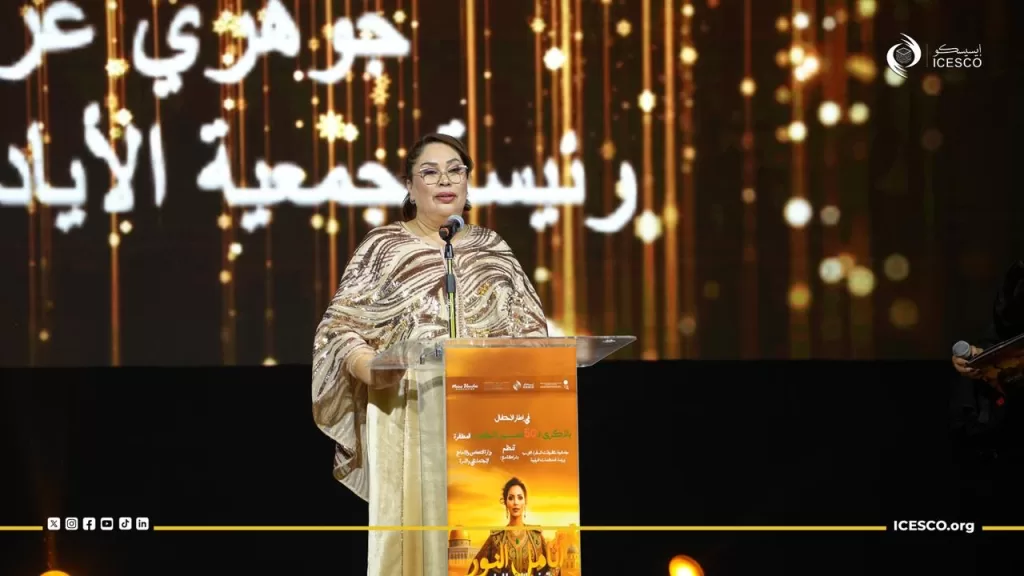
Following this, Ms. Ghariba El Jaouhari, President of the Mains Blanches Association, commended the tangible cooperation among all partners to ensure the gala’s success, stressing that the synergy between the Ministry, ICESCO and the Group of Spouses of Arab Ambassadors resulted in a distinctive charity event achieving its humanitarian objectives.
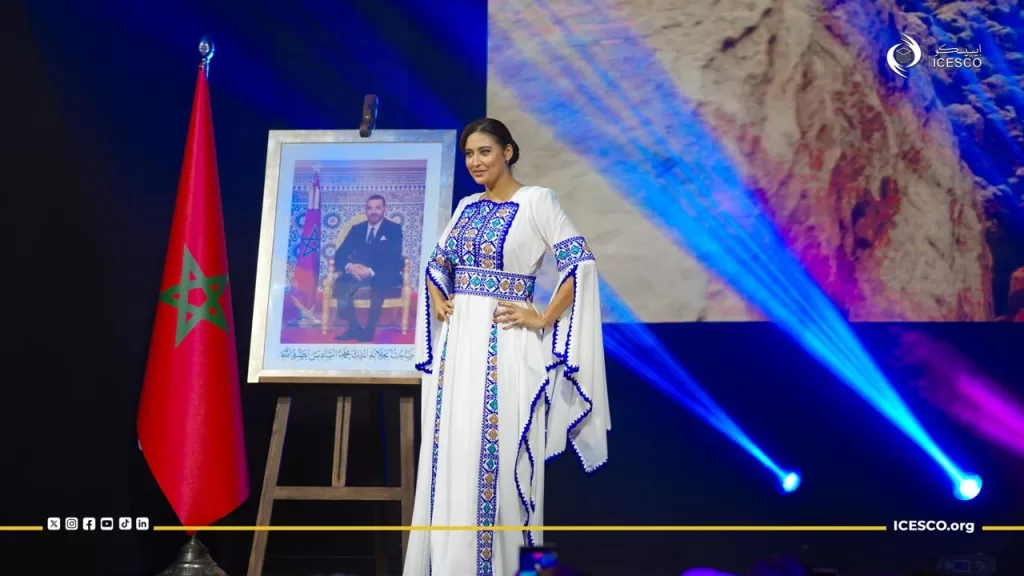
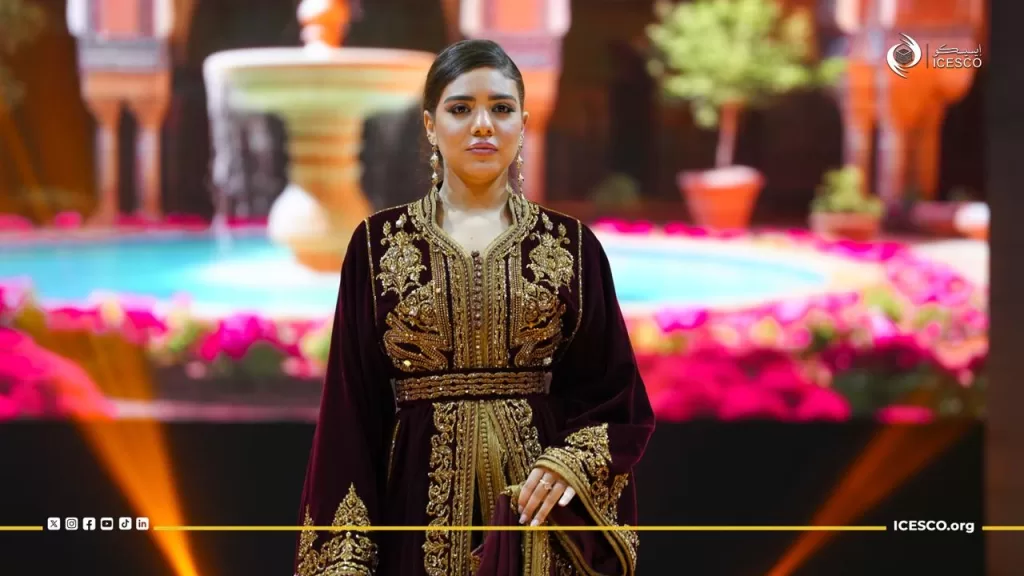
The gala featured a short film introducing Jordanian heritage as the event’s guest of honour, followed by a presentation of traditional fashion collections from participating countries, and concluded with diverse musical and artistic performances.
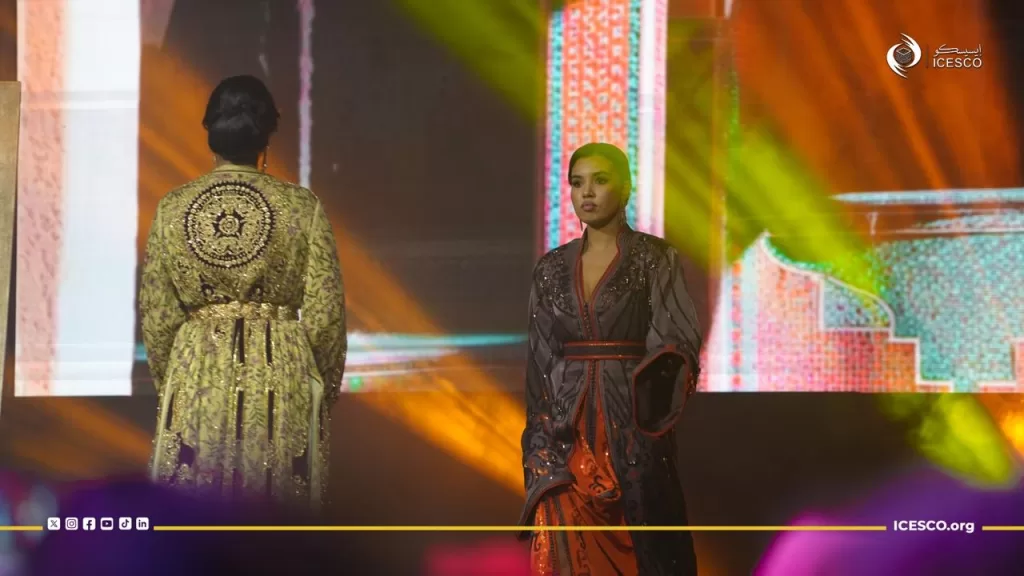
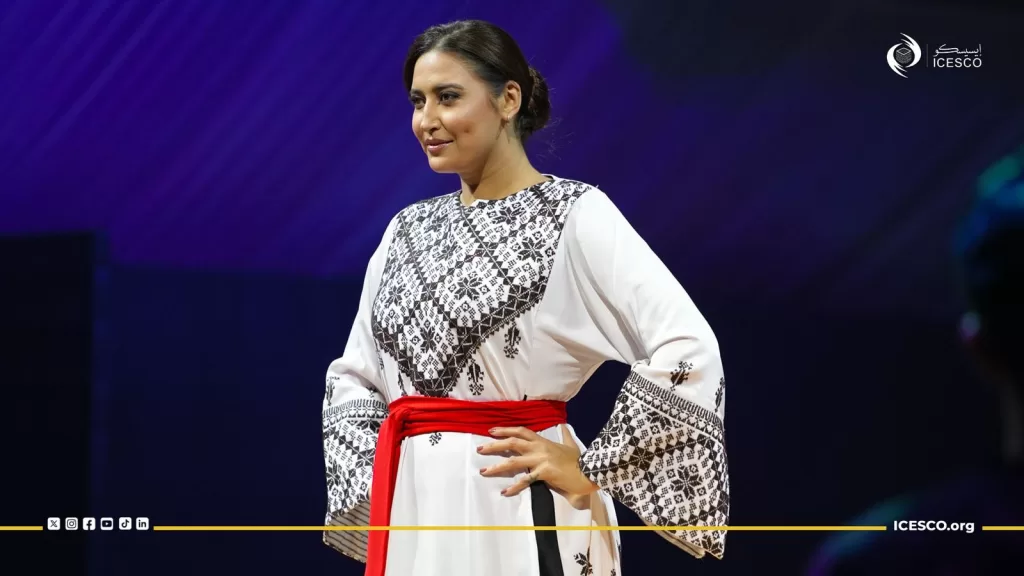
Participants expressed their satisfaction with the success of “Caftan Al Khair” in offering a model that combines the revival of Arab heritage, the empowerment of women’s creativity, and the pursuit of humanitarian goals, reaffirming the role of cultural and charity initiatives in promoting values of solidarity and generosity.
